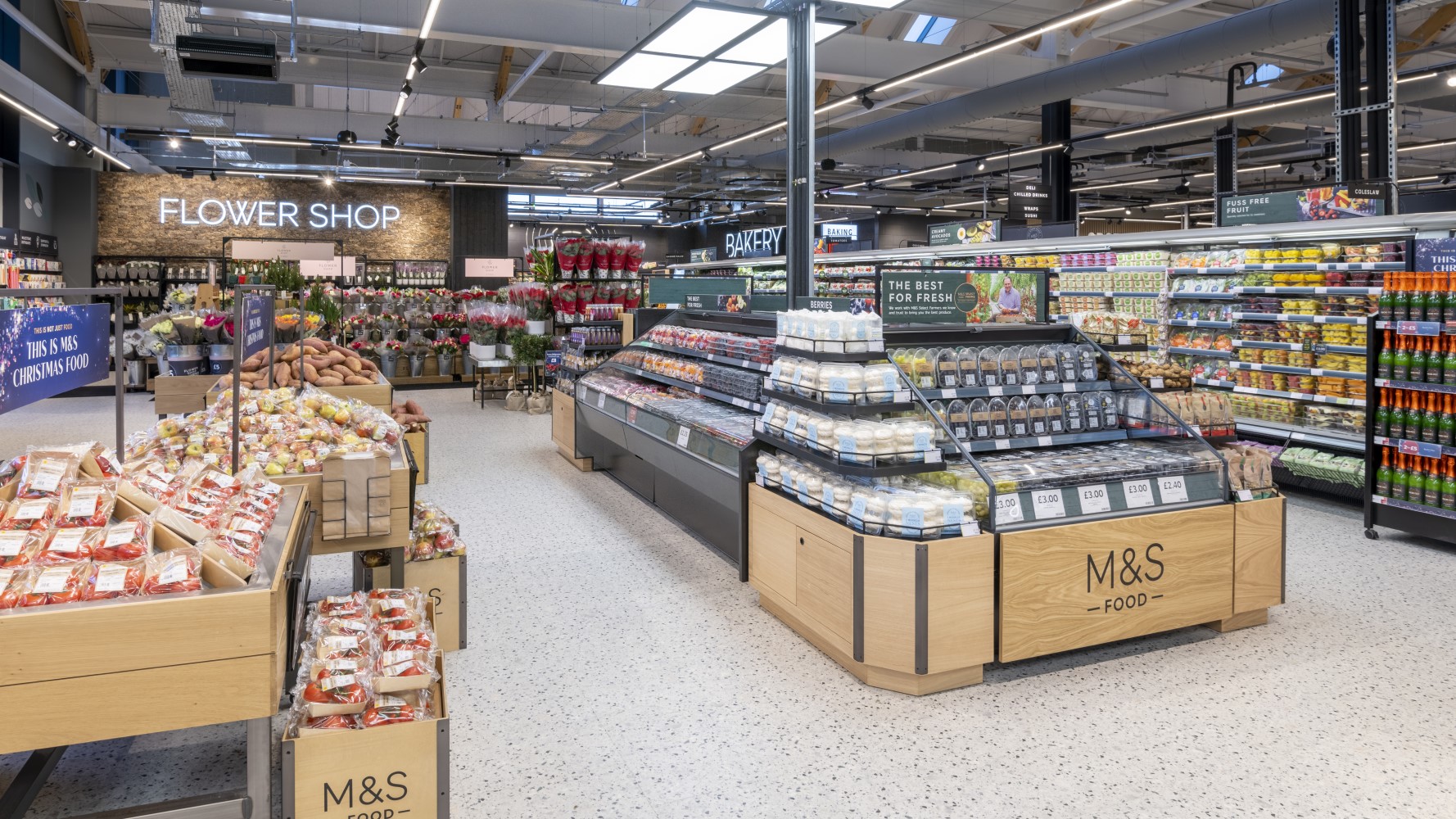New Product Development in the FMCG Industry

New product development (NPD) presents both opportunities and challenges for brands seeking growth. NPD in the fast-moving consumer goods (FMCG) industry is especially challenging due to the fast-paced, competitive and constantly evolving nature of this sector.
To stay competitive, FMCG companies need an agile product development strategy that adapts to changing consumer behaviour trends. This adaptability boosts the success of product launches and helps minimise risk.
Explore the unique challenges of new product development in the FMCG industry.
What Are Fast Moving Consumer Goods (FMCG)?
Fast-moving consumer goods (FMCG) are everyday products that people buy frequently and use quickly. Think of items like snacks, beverages, toiletries, cleaning supplies, and personal care products. These are the goods you pick up almost every week, often without thinking twice. They sell fast, and companies need to keep innovating to meet changing tastes and trends.
Unique Challenges of New Product Development in the FMCG Industry
New product development in FMCG can be an exciting time for businesses, but it comes with its own unique challenges. The new product development process in the FMCG sector is fueled by consumer needs and the need for continuous innovation. We’ll explore some challenges FMCG companies face when developing new products.
1. High Market Competition
The FMCG market is saturated by existing brands competing to sell similar products. For a new product to market successfully, teams need agile marketing strategies for strong branding to differentiate themselves from competitors.
2. Short Product Life Cycles
FMCG products often have a short shelf life. Whether it’s because they’re physical products that expire quickly or brand relevance fizzles over time. To avoid falling behind, companies need fast and agile NPD processes to align their product launch with demand.
3. Price Sensitivity
Price is a big deciding factor for consumers when it comes to FMCG products. Brands need to balance between delivering quality, innovation and affordability. Pricing too high risks alienating your target market, while pricing too low risks profitability and how the product’s quality will be perceived.
4. Rapidly Changing Consumer Preferences
Innovation is evolving to cater to shifting consumer preferences that lean more towards health and sustainable lifestyle changes. To keep up, brands need to keep up with these market trends and adapt how they design and test new products to align with these shifts. Staying ahead of these shifts helps FMCG brands identify emerging trends and apply them to their new product development strategy.
5. Regulatory and Compliance Pressures
Rules and regulations around packaging, product claims and consumer safety dictate a large part of new product development in FMGC. Brands are under pressure to remain compliant and protect against financial losses. This means ensuring packaging, product claims and safety regulations are adhered to, especially with food, beverage and personal care products.
6. Supply Chain Complexity
Producing FMCG products relies on supply chains that run smoothly throughout. Any delays or shortages of raw materials, production or transport can derail the new product development process. Excellent foresight and efficient sourcing are important to avoid any setbacks or losses to the company.
7. High Risk of Product Failure
New product launches can still fail to deliver despite extensive research and investment into their development. Products can fail because of poor customer acceptance or difficulty differentiating from similar products on the market. This only adds to the already high risks involved in FMCG product development.
8. Innovation vs. Brand Consistency
Brands need to adapt to changes in demand by innovating their offerings accordingly, but this risks losing the brand’s core identity in the process. Aggressive innovation risks alienating loyal customers with no certainty that these changes will attract new customers. It’s up to brands to find a balance between innovation and consistency when navigating the markets.
9. Retailer Influence
Even the most promising new products can be developed by teams. Still, success hinges on retailers to provide the shelf space, promotional backing and visibility needed for success. Companies need to provide strong pitches backed by reliable data from concept testing to win retailers’ support.
10. Sustainability and Ethical Concerns
Rising prices and economic uncertainty mean companies need to adopt sustainable practices regarding sourcing, production and packaging. This can be challenging for companies, especially with growing pressure to deliver quicker while reducing costs to the consumer.
Six Key Stages of FMCG New Product Development
Product teams face the task of developing ideas that not only compete with similar products but also dominate the market. Product ideas go through stages of ideation, testing, validation and optimisation before they’re ready to launch with confidence.
- Spotting Consumer Signals Through FMCG Market Research: Identifying gaps in the product category and tracking shifting consumer preferences to develop new product ideas.
- Shaping the FMCG Product Value Proposition: Defining a compelling value proposition that balances quality, affordability and emotional resonance with customers.
- Rapid Consumer Validation Loops: Testing product concepts, packaging and prototypes early to gather consumer feedback, reduce risk and optimise concepts before scaling for production.
- Building for Compliance & Scale: Ensuring products remain compliant by meeting regulatory standards, production requirements and ensuring efficient supply chain infrastructure.
- Winning in Market & Retail Channels: Securing retail support with data-backed pitches, strong marketing strategies and unique packaging.
- Adapting & Extending the Range: Using brand tracking and analysing performance metrics to refine and innovate products to maintain a competitive edge.
How FMCG Companies Can Leverage Product Intelligence to Build Better Products
The success of new product development relies on how well companies understand consumer preferences. Product intelligence platforms empower new brands to analyse shifting market trends, test product ideas early and refine strategies before investing in the idea.
FMCG Companies use data-backed insights to identify gaps in their product category that they can exploit. By using product intelligence to test new concepts, brands can fast-track their testing and deliver while demand is high. This means stronger and successful product launches with offers that align with consumer needs.
Switch to fast, real-time product testing with the world’s leading product intelligence platform. Contact our team and find out how Vypr can empower you.
Vypr: Driving Success with Real Consumer Insights
Vypr is the world’s leading product intelligence platform that enables businesses to rapidly understand changing consumer behaviour through fast, cost-effective consumer insight. We combine qualitative and quantitative research to provide reliable consumer insights that translate into agile strategies. Vypr’s mobile-first consumer intelligence platform enables brands to test new product ideas early and along every stage of the NPD process.
This ensures FMCG companies can tailor their offerings to align with consumer needs and avoid wasted resources from losses. Vypr equips teams with rapid and reliable feedback from real customers to empower teams to navigate the market with confidence. This means brands make faster, smarter decisions that reduce risk and losses. They can develop and adapt concepts in time with trends to ensure new products market successfully.
Smart decisions start with smart insights. Power your new product development in the FMCG industry with Vypr to unlock unbeatable performance. Book a demo now.







